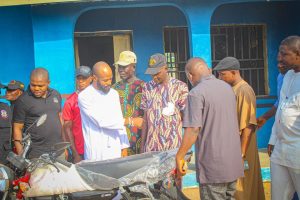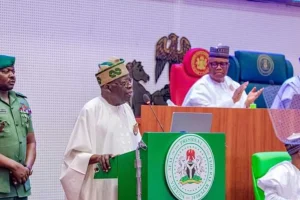By Our Reporter
Abuja, Nigeria – A prominent Nigerian think tank has launched a scathing critique of the Federal Government’s relentless pursuit of new international loans, demanding an immediate pivot towards harnessing the nation’s vast, untapped environmental wealth. Godwin Aigboviose Omage, CEO of Eki Co-Net and Chairman of GAF Africa, didn’t mince words in a recent article, openly offering his organisations’ expertise to guide the government away from what he described as a “debt spiral” and towards “green revenue” via certified carbon projects and sustainability-linked investments.
The excoriating appeal comes amid alarm over proposed new borrowings totaling an eye-watering $21.5 billion, €2.1 billion, and ¥15 billion. This fresh wave of debt ambition ironically follows Nigeria’s recent repayment of an IMF loan – a move now questioned by Omage as a mere facade. He warned that this cycle of repayment only to re-borrow risks “mortgaging Nigeria’s future” for generations to come.
Omage forcefully highlighted the burgeoning global green economy, valued at over $14 trillion and still expanding, as a readily available antidote to Nigeria’s debt addiction. He pointed to nations like Gabon, Kenya, and even tiny Pacific Islands already raking in significant revenue through carbon credit monetisation, renewable energy deployment, sustainable agriculture, waste-to-wealth innovation, and eco-conservation tourism. Yet, despite Nigeria’s undeniable bounty of forests, wetlands, and renewable resources, Omage charged that the nation is “leaving billions of dollars unclaimed” due to a glaring “lack of understanding at the top” regarding the mechanics of carbon credit markets.
To counter this perceived ignorance, Eki Co-Net and GAF Africa are co-hosting the S.O.F.T (Sustainability, Opportunity, Future, and Technology) Conference in Dubai on July 29–30, 2025. The event is unapologetically billed as a “green economy deal room,” designed to forcibly connect government leaders, investors, and innovators and shame them into facilitating investment deals in renewable energy, climate technology, and carbon monetisation.
Omage concluded with an unequivocal challenge to the Federal Government, insisting that Nigeria has a crucial, yet currently neglected, role to play in this global shift. “Nigeria doesn’t need more loans. We need leadership that sees beyond them,” he declared. His parting shot to the government was a blunt directive: “Let’s move from debt to development. From borrowing to building. From survival to sustainability.”





Add Comment